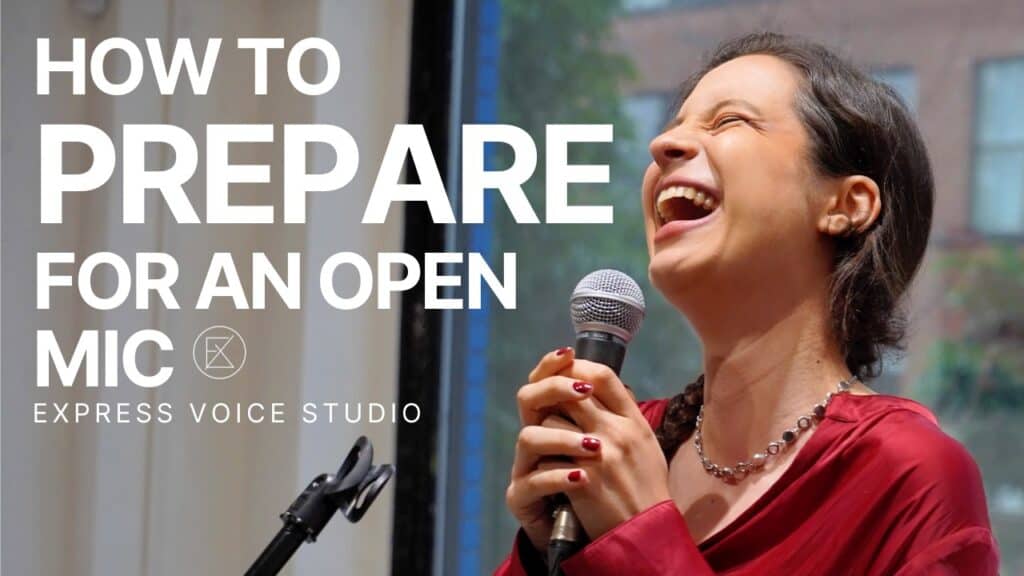The underlying motive of human beings is to achieve a result as quickly and efficiently as possible. This is why marketing catchy titles which promise a fast result are so effective! But, have you considered that like trying to lose weight or using physiotherapy to rebuild muscle coordination and strength, proper breathing is also a full body exercise with absolutely no shortcuts?
But hey, maybe your breathing is already amazing! How am I to know? Just a voice on the internet. So why don’t I help you the best I can to analyze and improve breath support and check if indeed you know how to breathe correctly.

Physiology Of Breathing
To grasp the intricacies of proper breathing, it’s crucial to delve into the mechanics. Despite its daily occurrence, how much do we truly understand about breathing?
Breathing is orchestrated by the autonomous nervous and motor systems, functioning independently to maintain equilibrium. This intricate system not only ensures the optimal intake of oxygen and a balanced level of carbon dioxide but also involves the expansion of the back during inhalation. The diaphragm, a muscular and tendinous structure spanning the base of the neck, is a key player in this process. As diaphragmatic muscles contract during inhalation, the back expands, facilitating the smooth influx of air.
What is SUPPORT
Although methods for conceptualizing and developing breath support are varied from person to person according to the training techniques they have adopted, most teachers and singing artists have common concepts or definitions. Support is using various parts of the skeletal system, such as muscle and lungs, as tools for producing the desired result: improved tone and the capability of singing longer phrases and maintaining the same notes. When a singing teacher talks of the terms breath control or vocal power they are inherently referring to the existence of breathing control techniques necessary for proper breath support.
There are various ways to learn to sing, and many teachers disagree on the best way to make beautiful sound fastest and with the least negative side effects. However, it seems like everyone agrees at least that diaphragmatic breathing is an essential component in singing properly.
Reasons for Dysfunctional Breathing
Dysfunctional breathing happens when we don’t control our breathing. It is common practice for people to inadvertently breathe incorrectly. If a singer has no ability to relax the throat or diaphragm before inhalation, only the upper lungs are filled. There will be no vocal power. A good singing teacher understands the vital importance of relaxation to breathe correctly and efficiently. But the majority of singers lack psychosomatic skills (when we connect our brain/ body awareness/ and muscle malleability to these thoughts) and their singing voice suffers.
Human beings in general tend to breathe in their air flow in a shallow way. Even with practice it takes some time before the healthy diaphragmatic breathing cycle becomes the nervous system’s habitual coordination. Unlike driving on autopilot, this breathing pattern requires conscious work in the beginning before eventually taking minimal energy. Singing requires more coordinated efforts and more diverse breathing methods than it merely takes to survive. This is why most people never address their breathing: They are alive, so it must be working.
However, for vocalists, if the underlying foundation of their breathing techniques fails, singers can have erratic performance outcomes.
The Truth About Breathing Exercises For Singing
As a singer, your breath is the first step to making a good sound. If your breathing is tight, your voice will be tight, your vocal cords will feel stiff, and your singing voice will suffer. Our correct breathing is what we will refer to as the breathing mechanism. It is dependent on flexibility through the rib cage- particularly through the back- proper posture, and a release of unnecessary tension through the pelvic region and abdominal wall to allow space for the diaphragm.
Sounds complicated? It is and it isn’t.
Your body is actually designed to use proper breathing techniques. This is why babies can scream without tiring- their bodies have yet to be manipulated by slouching in class and at work, how we tighten our neck when we workout, or how we constantly manipulate our posture as we look down at our phone to text.
The way we use our body builds what is referred to in Alexander Technique as “undo tension,” and as singers we must become hyper aware of how we are using our body: Natural breathing is achieved through the process of releasing tension in the body while re coordinating correct habitual patterns.
The most frustrating part of it all: there is no black and white, a + b= c approach to breathing well. 🤷🏼Your body and the tensions you have are completely different from everyone else, which is why breathing exercises which claim to be a universal solution are not the quick fix you think they are.

How To Analyze Your Breathing Technique
Lets play body detective. Perform these tests to check if you are relaxed and are breathing correctly. This test will not give you the answer to the question, “Where is my unnecessary tension?” However, it will visually and immediately answer the question, “Do I breathe correctly?”
1. Find a mirror in which you can see your full body
2. Stand naturally- don’t position yourself in any manufactured way
3. Start with a an exhale: let out everything you are holding onto
4. Inhale slowly and watch how your body takes in air. These should be slow breaths so that you can see how your body tries to make room for their air
5. Ask yourself what is moving? What feels stiff? Make notes of these observations
6. Make sure to Inhale deeply, but notice if you have the urge to “tank up.”
Beginner singers usually breathe as much air as they can without taking any time to think of the length of phrase. These breathing habits often result in an ‘increase in clogging up the lungs’ resulting in ‘fast breaths expelled’. (These same singers are usually ‘clavicular’ breathers who gasp for air between phrases in order to expel the remaining stale air.)
We can label tanking up as taking in as much air as your lung capacity will allow. When you inhale, how much air you take should be somewhere between a deep breath with your lungs filling, but not so deep that you tank up.
Keep this in mind as you perform the following tests.
What Is "Tanking UP"
Beginner singers usually breathe as much air as they can without taking any time to think of the length of phrase. These breathing habits often result in an ‘increase in clogging up the lungs’ resulting in ‘fast breaths expelled’. (These same singers are usually ‘clavicular’ breathers who gasp for air between phrases in order to expel the remaining stale air.)
We can label tanking up as taking in as much air as your lung capacity will allow. When you inhale, how much air you take should be somewhere between a deep breath with your lungs filling, but not so deep that you tank up.
Keep this in mind as you perform the following tests.

Test Your Breathing
The following are directions to aid you in learning how to identify whether you need to improve your breathing. If breathing is halting your progress as a singer- you’re about to know it!
1. Don't think too much
Don’t think about air quantity on this breath. Just go for it!
When you breathe in, do you feel you are taking shallow breaths?
When you think about your breathing throughout the day, do you think they are shallow breaths? Do you feel your air rapidly fills in short bursts? Do you feel your air supply is small causing you to breathe more often?
Write down what you notice.
2. Consciously inhale
Lets consciously inhale now.
Inhale deeply without tanking up.
Do you feel a tension in your chest or between your collar bones?
3. Lower Body Test
When you breathe in and sing a single note or sound, do your hip sockets tighten? Do you become stiff in your legs, lower back, or hips?
Write down what you feel.
4. Upper Body Test
Make sure to look in a mirror now. When you breathe in, do your shoulders rise? Do you notice your chest rises?
Write down what you see.
5. Jaw Test
During your inhale or sound production, does your jaw tighten? What about your neck?
Write down what you feel.
6. Back Flexibility Test
Now lay on the floor with your knees up and feet flat on the ground. When you inhale, does your back widen, slightly pressing into the ground, or do you feel tighten? Do you feel your back actually pulls away from the ground instead of opening into it?
Write down what you feel.
7. Self Assessment Time!
If you answered yes to any of these tests and noticed any of the above tensions listed, your body is not free to take in air and support your sound with its full strength and colour.
Your intercostal muscles are likely not engaged. The surrounding muscles may in fact be extremely tense preventing proper vocal technique, relaxation and even causing poor posture.
Any “breathe exercises” from Youtube for instance that you perform will not address the overall coordination of your body and your unique tensions.
So what will?

Alexander Technique For Singers
As I mentioned earlier, I cannot give you a quick fix! This is why a vocal coach is so essential: A singing coach trained in Alexander Technique will be able to analyze your sound quality and physical habits. Based on their observations, they will be able to walk you through a sequence of thoughts which will re coordinate your body and develop mobility through key areas for healthy singing, such as the rib cage, psoas muscle, lower back, and freedom of the neck and jaw.
In order to breathe properly, you must learn how to work around sensory perception: The current understanding of the nervous system as to how to coordinate itself to make sound and breathe. Many singers, actors, voice actors, tour guides, etc. use Alexander Technique to improve their sound and breath control for this reason. It is a proven method of improving breath management, breath support, vocal range, vocal power, reducing chronic pain in neck and abdominal muscles,, and ensuring you can in fact breathe deeply.
When you understand how to monitor your body for tension, inhibit habitual reactions, and coordinate new muscles, you will be able to apply this awareness and learning methodology to vocal exercises and breathing exercises you find online.
The danger to your vocal health, proper posture, and breath control lies in mindlessly performing actions with your body which reaffirm bad habits.
When you are ready to take the next step, reach out to a voice teacher- preferably one with training in alexander technique- and change the way you breathe to change how you sing. Undoubtedly you will also be overjoyed with how much better your neck feels on a daily basis, how your jaw seems to feel less tight, how you can easily maintain proper posture without thinking about it, and how naturally your body can take a correct breath.

What About Yoga Breathing?
Many singers ask if yoga and practicing yoga breathing specifically is good for improving breath control. From an Alexander Technique perspective, any activity can be beneficial for breathing if you bring conscious control into the equation: Conscious control is the term given by Alexander to a form of body awareness where the head-neck-back- relationship leads all movement in order to organize the entire body correctly. Without this awareness, your movement through a yoga flow is comprised of habitual movement restricted by whatever tensions your body holds.
When we stretch a muscle, we do not re coordinate it back into the necessary functioning of the entire body. This is why when you stretch your neck, it may feel temporarily better, but very quickly the pain returns: Your body is coordinating itself the way it always has.
However, if you learn how to use Alexander Technique, every yoga practice breathing move becomes a brilliant way to build and change the coordination of your body! Don’t get me wrong. belly breathing is never going to be the answer to proper breathing, but the combination of Alexander Technique- conscious re coordinating of the body- with the mobility and stretching of yoga and yoga breathing is a beautiful combination.
Thus, stretching and yoga by itself may make you feel good, it certainly relaxes you, but it will not change your singing voice or directly improve breathing techniques.

Breathing for singing: To the diaphragm and beyond!
My job as a voice teacher is for students to learn to sing properly, which involves teaching a student to breathe! Sometimes students may request breathing exercises directly, but they are not ready for me to give them breathing exercises because they are trying to “end gain.” That is, they desperately want a result, and they want it quickly, so any direction I give them is filtered through a need to achieve a result and body awareness and observation flies out the window.
This is why voice classes in person are so great. As a singing coach trained in Alexander Technique, I can stimulate their nervous system to respond with improved coordination through my touch while walking the student through the thought sequences I have successfully used to re coordinate my own body.
So, How can one learn how to breathe properly while singing? By developing a sequence of thoughts that works for them to relax and re coordinate the body even before making sound.
Everyday, whether you choose to follow along to an Alexander Technique style warmup or practice another form of body awareness, all that matters is that you try it! Stop being in a rush to make sound and take the time to be hyper aware of what your body is doing. Once you master inhaling without tension, you will be much better aligned to work on engaging your muscles on the exhale.
One thing is certain
Learning to breathe when working on a singing voice is a good starting point. It is because breathing support makes your voice strong throughout your entire vocal range.
Generally, singing exercises are helpful for enhancing your breathing ability but need to be integrated into your routine when ready.
So prioritize working with a singing teacher trained in breathing exercises, alexander technique, and voice lessons who has also gone through the journey of discovering this work for his or herself- this is the best person to impart their knowledge onto you.






